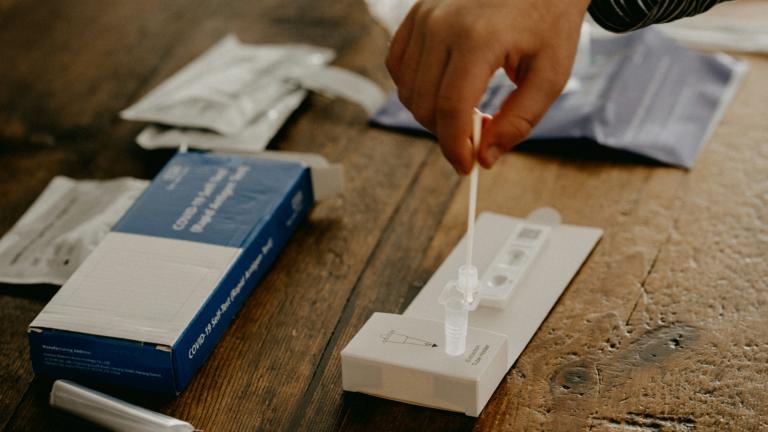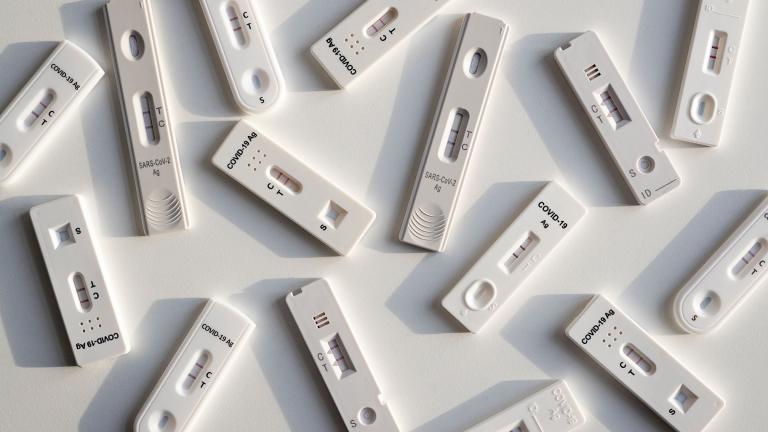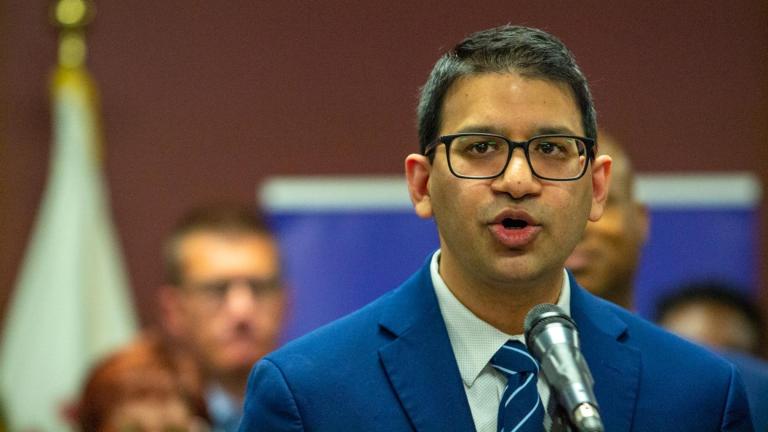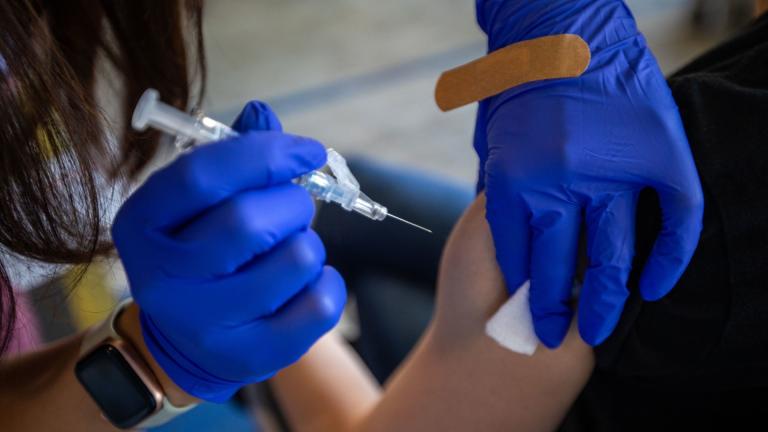A new study from Johns Hopkins University finds that fewer than 20% of organ transplant patients generated an antibody response to the first dose of the COVID-19 vaccine from both Pfizer-BioNTech and Moderna.
The preliminary study raises questions about vaccine protection for not only those patients, but for others with weakened immune systems, such as people with HIV/AIDS or cancer and those taking steroids or medications for rheumatoid arthritis, lupus, ulcerative colitis and inflammatory bowel disease.
We spoke about the issue with Dr. Michael Angarone, an associate professor of medicine who specializes in infectious diseases at Northwestern University’s Feinberg School of Medicine.
The following Q&A has been edited for clarity.
There is a new John Hopkins study on immunocompromised patients that shows their antibody response is far weaker than healthy people who got the COVID-19 vaccine. Is that immune response different from the flu vaccine in people with compromised immune systems?
I think that’s a great question and a great way to start thinking about this information as we get it. So, the largest study that we have so far is out of Johns Hopkins, where they looked at 436 individuals that were transplant recipients who received the vaccine. And what they found was after the first dose, they tolerated it—they did OK with the vaccine—but they had a lower antibody response when compared to immune-competent individuals. This is only after the first dose. So, we don’t know as of yet after the second dose.
Now, when we think about precedent, we know that immune-compromised individuals for decades have been getting influenza vaccines and hepatitis B vaccines, tetanus vaccines, etc. And we know that those vaccines don’t work as well. The efficacy is not as good in individuals who are immune-compromised, and that’s a huge group of individuals. There are differences within that group about the immune-compromised state, but in general, vaccines are not as efficacious. The antibody response isn’t as robust as it is if they had a normal immune system or had a normal functioning immune system.
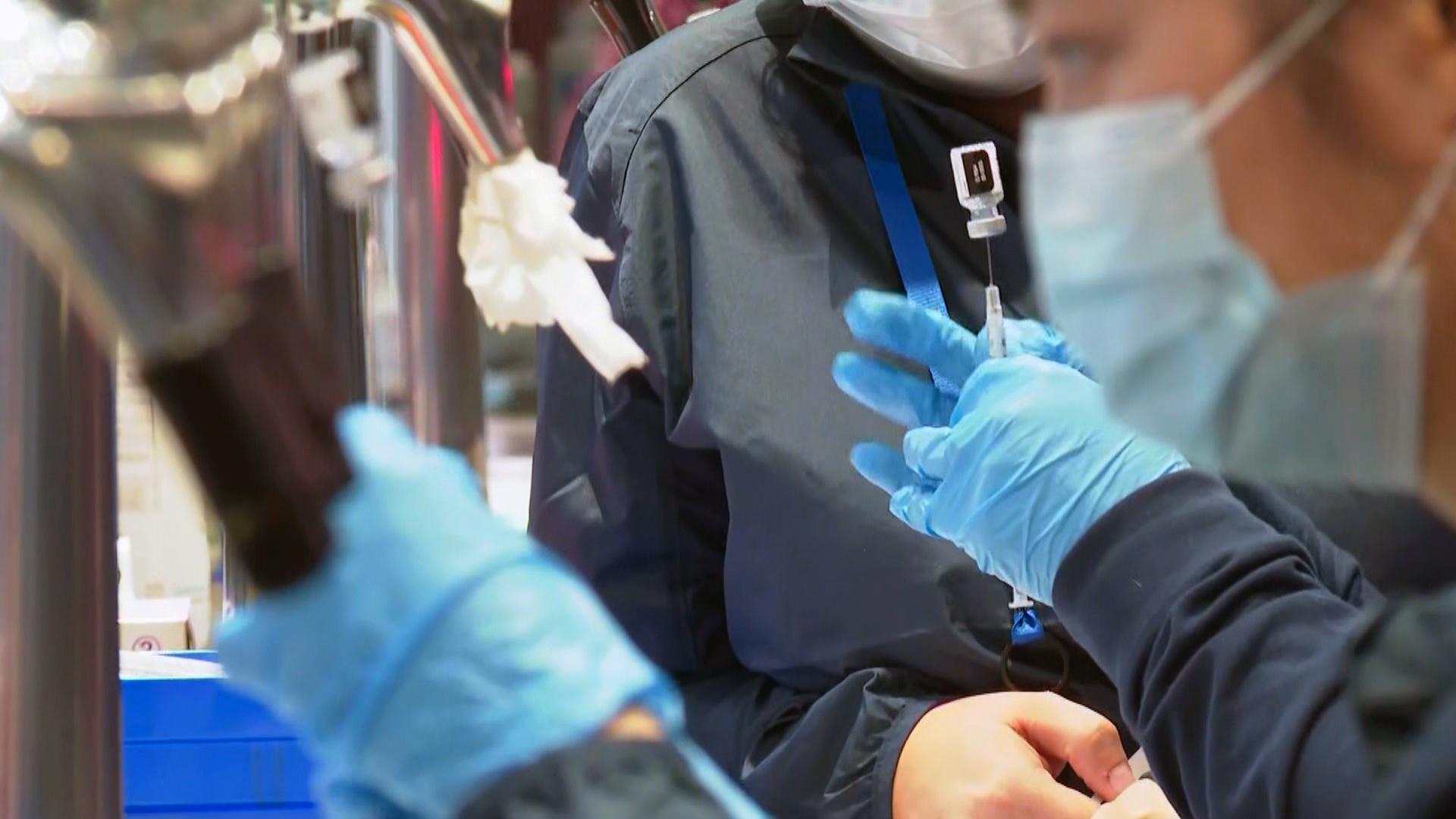 A new Johns Hopkins study finds fewer than 20% of organ transplant patients generated an antibody response to the first dose of both the Pfizer-BioNTech and Moderna vaccines. (WTTW News via CNN)
A new Johns Hopkins study finds fewer than 20% of organ transplant patients generated an antibody response to the first dose of both the Pfizer-BioNTech and Moderna vaccines. (WTTW News via CNN)
Should immune-compromised people be vaccinated?
The way that I discuss with my patients that I see who are immune-suppressed is that yes, you should get the vaccine. Any little protection that you get is going to be beneficial, whether it’s something we can measure or not. That’s going to be beneficial, but getting that vaccine is not a license to go back to normal for you as an immune-suppressed individual. You still have to take care to monitor what you’re doing or to be selective in what you’re doing. You still have to do those protective measures. You still have to wear a mask.
The unfortunate thing is we don’t know who’s immune-suppressed. So, the immune-suppressed may tell their family or friends, but they’re not walking around with a sign saying I’m immune-suppressed. And so that’s where the CDC recommendations still apply. I think that’s where it’s really important to understand why we need to wear a mask, why we still need to distance and be mindful of what we’re doing on a day-to-day basis, even though we are getting vaccinated. You got vaccinated, but you should still wear a mask, you should still take care to try to protect those around you. And those around you is more than just your family. That’s everyone that you encounter because you don’t know who might be vulnerable.
The variants that are popping up are seemingly more contagious. When will there be a return to normal for immunocompromised folks?
I think really hard to answer because we haven’t even yet felt the full impact of these variants or how these variants are going to start to modify the response just in general to vaccination and being immune to SARS CoV-2. I think we’re still a ways away from being back to normal for all of us, but especially for immune-suppressed individuals. And I think to really try to predict when that’s going to be is very difficult because we really need to see what’s going to happen as things start to evolve and change with the pandemic as these new variants start to take hold and start to dominate.
If somebody is immunocompromised and they get COVID-19 or one of these variants, how dangerous is it?
It can be severe. We’re starting to have data where we’re able to look at large populations of immune-compromised individuals that have developed SARS CoV-2 infection, developed COVID and start to compare them to then non-immune-compromised population. And we start to see that the immune-compromised population is at a higher risk of developing more infection, needing to be hospitalized, needing to be placed on oxygen, needing intensive care unit care and potentially a higher mortality related to the infection than the non-immune-compromised. It hasn’t been universal. But we’re starting to put that picture together that the immune-compromised is at a higher risk of more severe COVID than the non-immune-compromised, which was something that we have worried about when we think about influenza and other infections as well.
With the numbers going up and with the variants popping up, do you think immunocompromised people are going to be masked for the foreseeable future?
Yes. I think we’re going to be wearing masks for a while. When that’s going to end, I think it’s hard to say because we are learning all the time. Outdoor transmission is fairly uncommon or a lower risk, so maybe we don’t need to wear masks as much outdoors. But I think immune-suppressed are going to be wearing a mask for a while. I think even those individuals that are immune-competent are going to be wearing masks as well, especially indoors. Outdoors, maybe not so much, but I think indoors, going into a restaurant, going into a supermarket or a store, I think we’re going to be seeing masks for a while. I don’t think that that’s going to go away until we have assurance that we’ve really lowered the amount of infection that’s circulating and that we’re really decreasing the risk of people acquiring the infection. So that’s something that’s going to stay for a while.
Do you have any concerns about immunocompromised folks having a false sense of security for having been vaccinated?
Yeah, that’s a huge concern. I think for everyone, whether immune-compromised or immune-competent of having the sense of, ‘I can just do what I was doing two years ago,’ and that does concern us. That’s where I think educating everyone, including immune-compromised and especially immune-compromised individuals about what might be the risk and that you can’t go back to just normal business as usual. You still have to be mindful.



